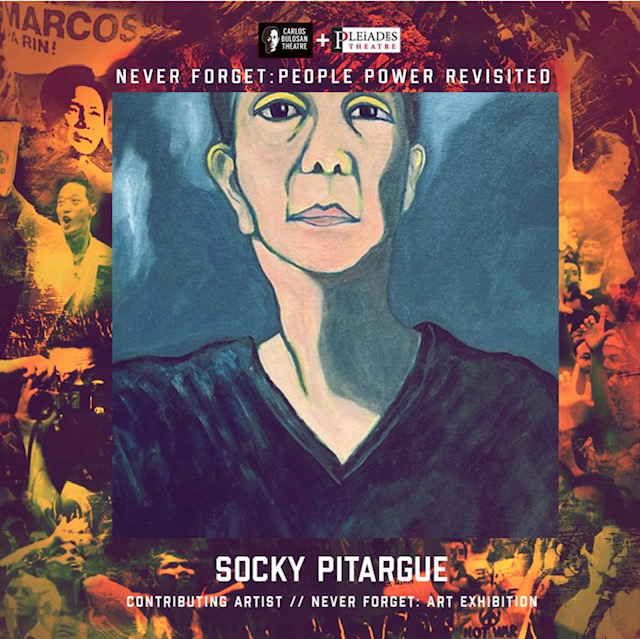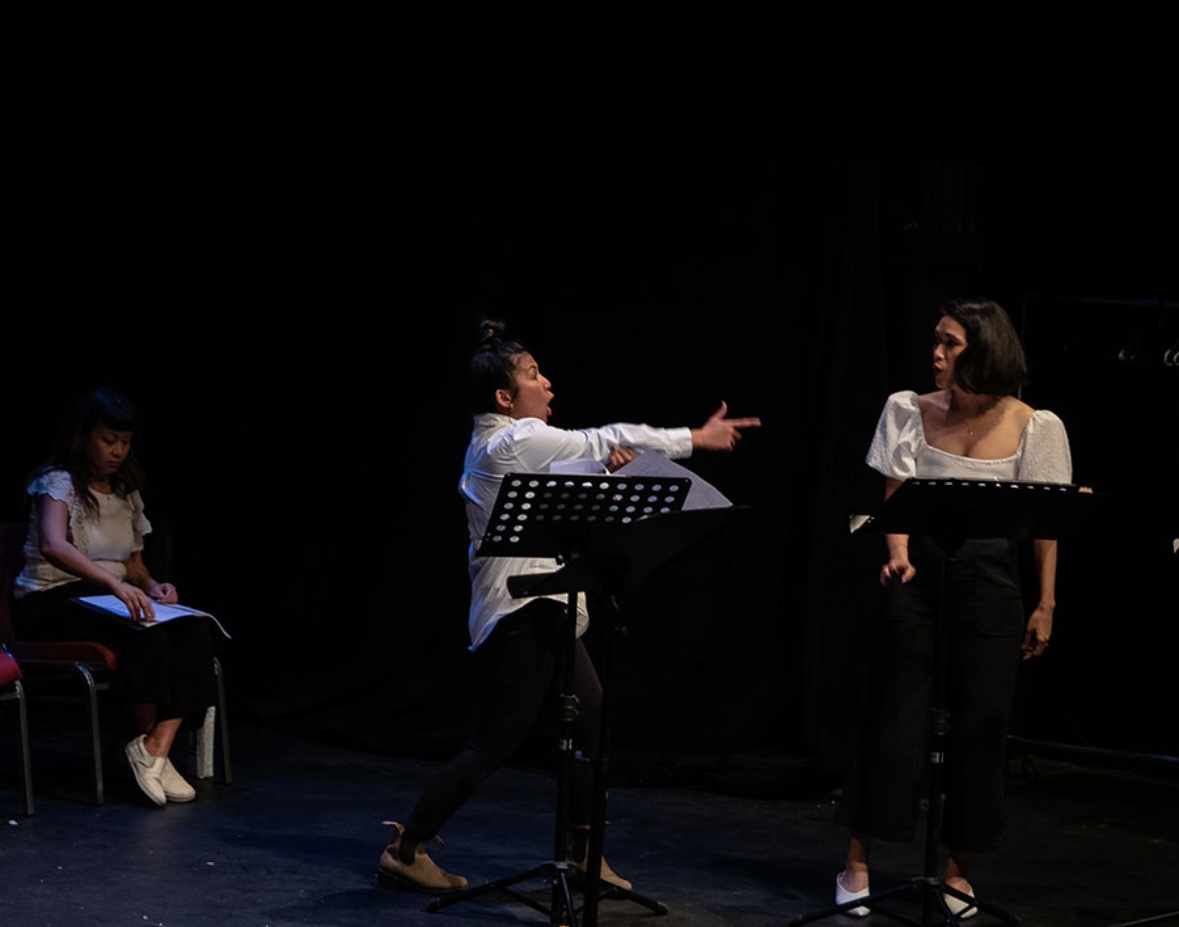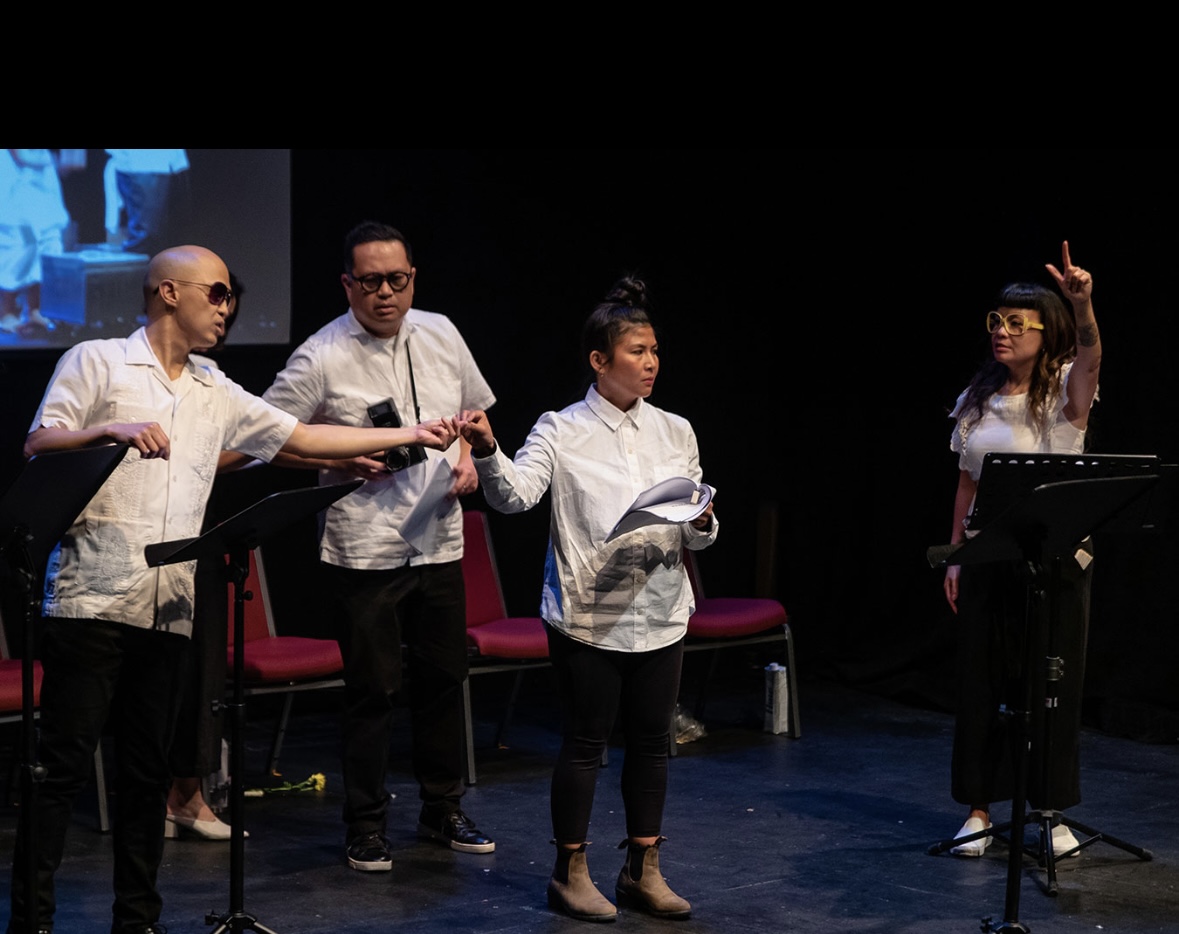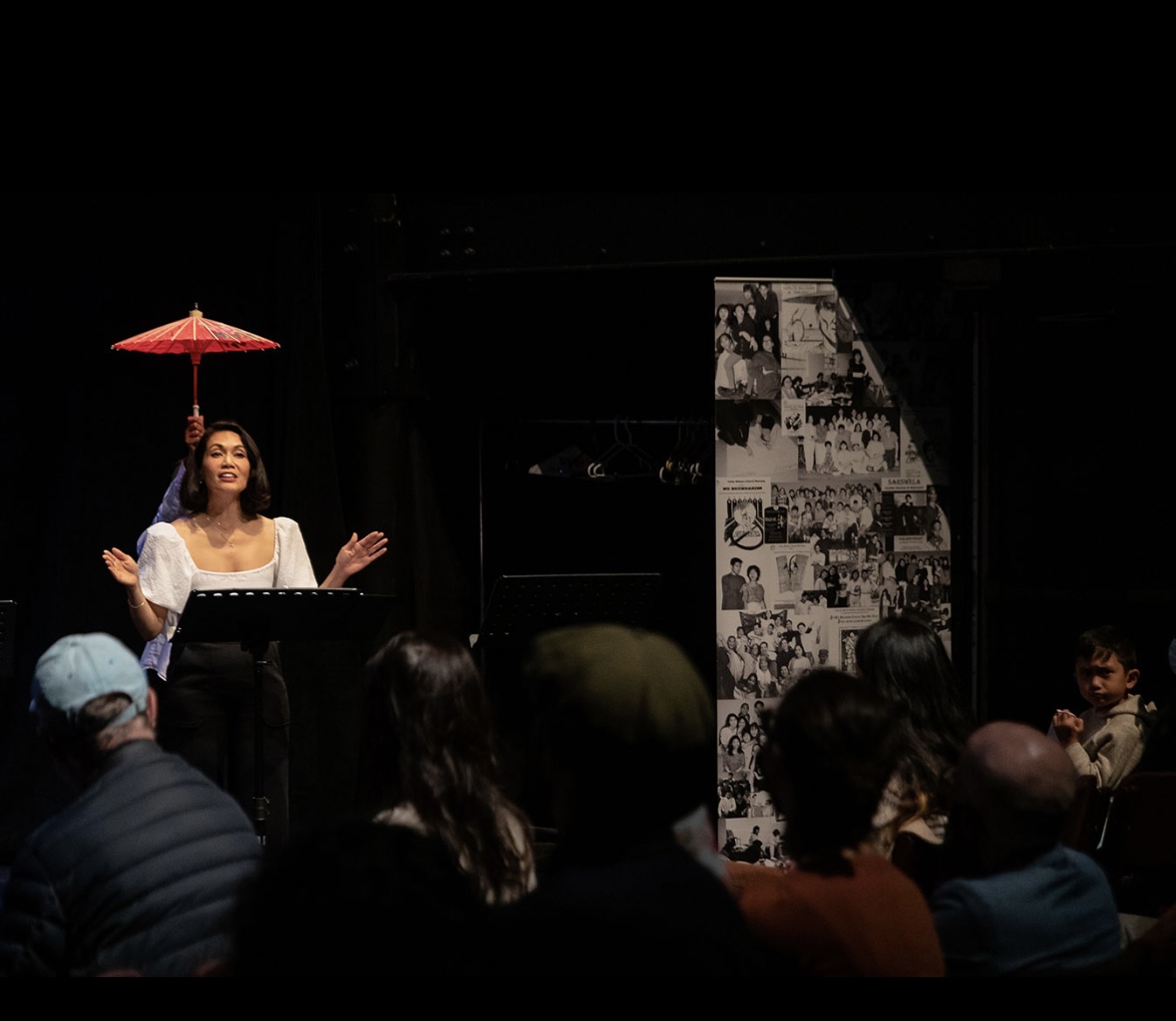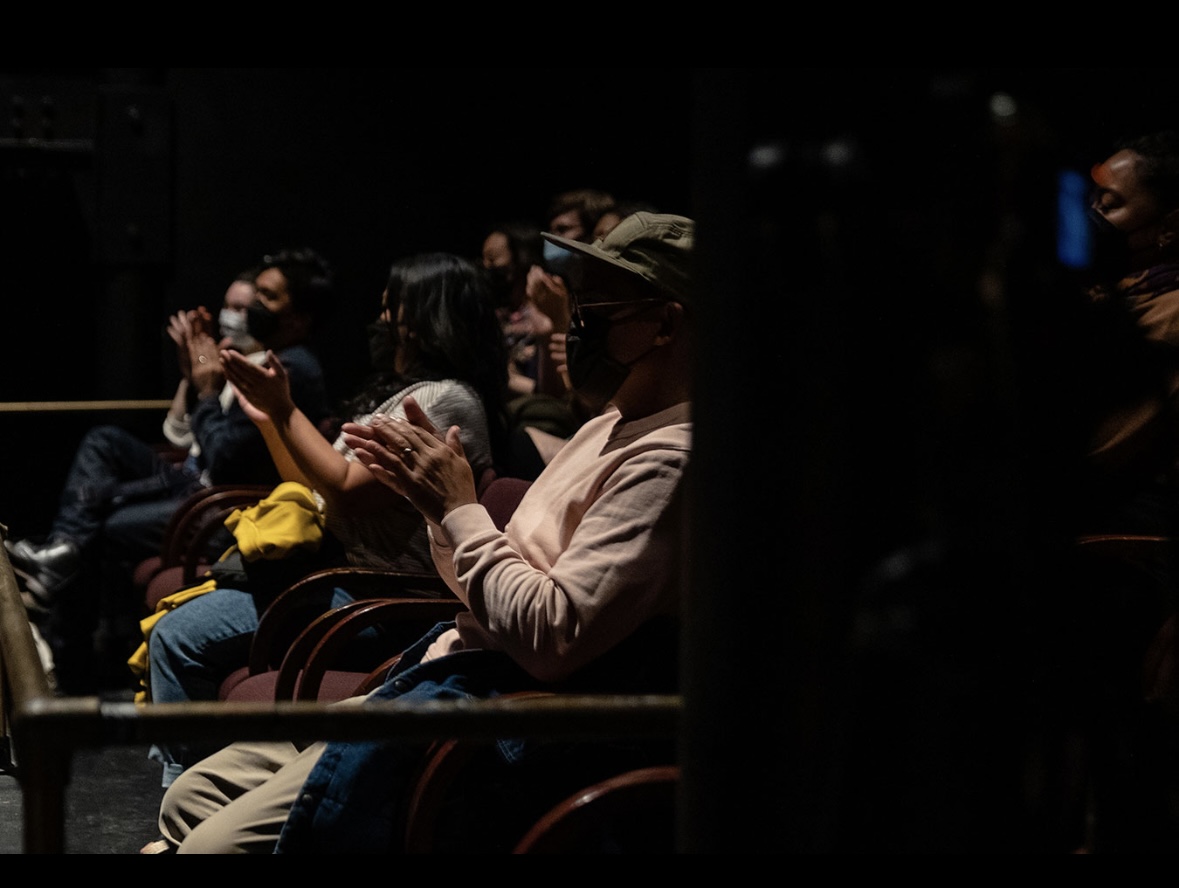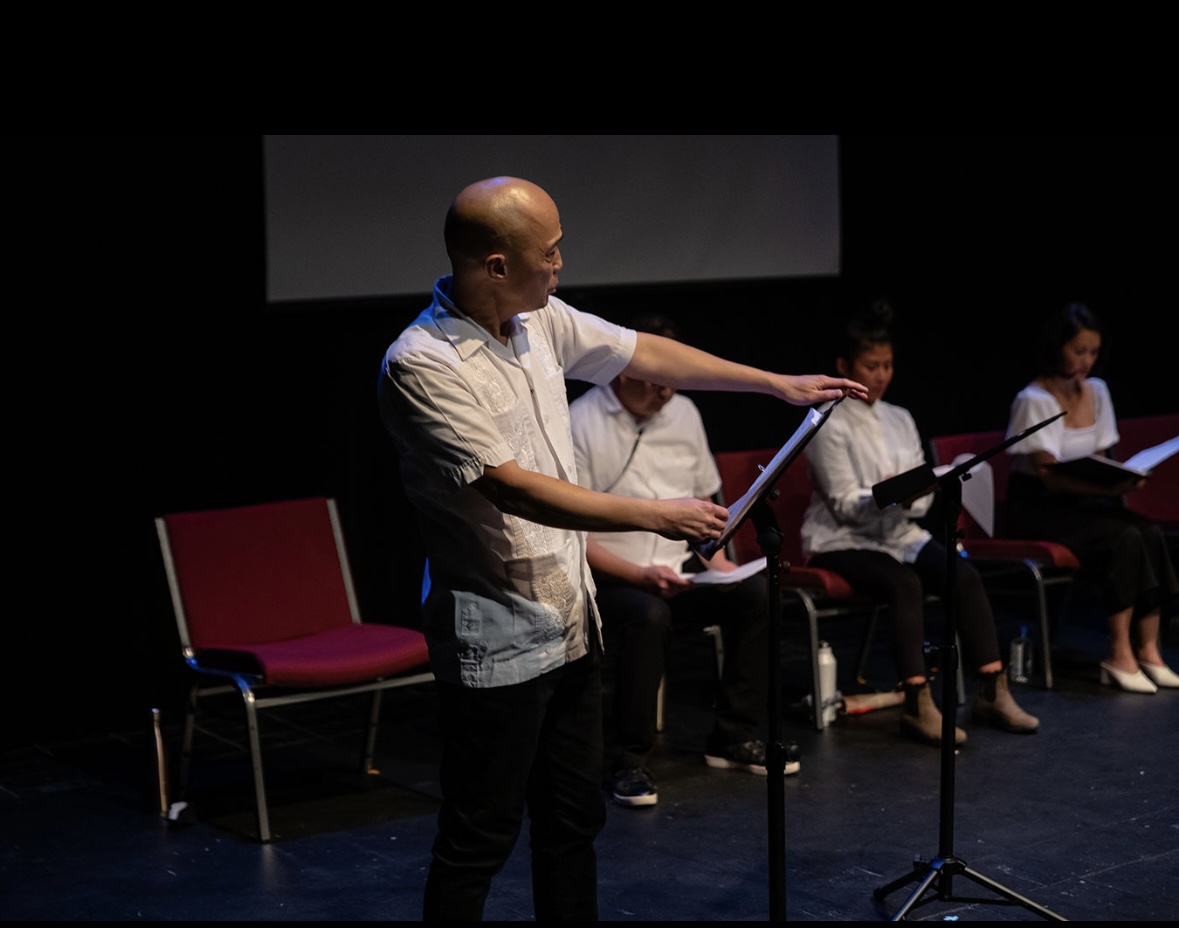
The Carlos Bulosan Theatre (CBT) staged reading of its original play “Never Forget: People Power Revisited,” co-produced by Pleiades Theatre, ran for three nights from October 25-27 at the Theatre Passe Muraille. The People Power Collective, comprised of Leon Aureus, Nadine Villasin, Rose Cortez, Christine Mangosing, and Nicco Lorenzo Garcia, wrote and performed many of CBT’s visually stunning staged readings. They were moved by the story of the People Power uprising in 1986, which brought down Marcos Sr’s dictatorship. The staged reading brought back the social and political theatre that CBT has been known for in Toronto since its inception forty years ago.
In a semi-colonial and semi-feudal society like the Philippines, the play investigates how different households and social classes reacted to the political and social upheavals that were occurring at the time. How do people who live under tyranny manage to remain resilient in the face of adversity? The play depicts the struggle between the wealthy and the poor in a semicolonial and semifeudal society from the perspective of an average Filipino, such as a taxi driver or a family from the middle class. The play explores every facet of Filipino culture and society from this vantage point, which allows it to cover a lot of ground.
Cory Aquino and Marcos Sr. appeared to be praying together during one of the staged readings of the play, submitting to American imperialism. This particular scene in the play is important because it illustrates a political and social change that the US still fully controls. The prayer act gives the play’s narrative more depth, and as a result, it confirms that imperialist forces directly influenced and shaped the course of a nation’s history.
Reviving the play would be a good way to remember the history of the people of the Philippines rising up against their oppressors and seizing power, according to Leon Aureus, who is in charge of creative projects at CBT. He believes that this would be an effective way to remember the play. This was a response to a question about the reasons why the play ought to be restaged, and it was as follows: “We want to bring back the events of People Power into the conversation,” says Aureus, “to correct the historical distortion that portrays the Marcos family as heroes of the Filipino people.”
Following the staged reading, a panel discussion was held in which community activist Martha Ocampo, former political prisoner Ricky Esguerra, and cultural worker Edmundo Muyot discussed the triumph of the Filipino people over a fascist and dictatorial regime. Ocampo made it abundantly clear that there was a lack of education about the reasons behind EDSA1 and how to use people power after this. This increases the likelihood that future generations will be poorly informed about the People’s Power uprising and have a distorted understanding of it. Ocampo made an impassioned appeal to Toronto theatre groups, urging them to collaborate in order to create plays that counteract the effects of disinformation. According to Ricky Esguerra, there will always be mass action as the people’s uprising so long as the elite-led and foreign-dominated system exists. Fundamental systemic changes are necessary for the Philippines to attain freedom and independence. The participation of these well-known members of the community lends credibility to the mission of the play, which is to deliver a message of hope to the next generation of Filipinos and to those who were not born during the most severe social and political crisis the country has ever been forced to confront.
In addition to the CBT staged reading, the audience also enjoyed an art exhibition curated by Maria Patricia Abuel. Toronto’s Socky Pitargue was one of the many artists featured in the exhibition. Pitargue’s work appeared to emphasize the importance of artists understanding their social role in the struggle for national democracy in the Philippines, so as to avoid isolating themselves from society and struggles such as the one against Marcos’ fascism and dictatorship.
The Carlos Bulosan Theatre production at the Theatre Passe Muraille was a resounding success in every way, including the staging, panel discussion, and exhibition of curated artwork that ran concurrently with the staged readings. The audience response, on the other hand, was the single most important factor. Members of the audience were inspired to collaborate with CBT on theatre projects centred on Filipino art and history.
The writers from the “people power collective” were able to demonstrate that the US has always and continues to completely control the Philippines. Why the Philippines is still an agricultural country and why there are no industries to help all classes and sectors of society progress is a reflection of a semi-colonial and semi-feudal society. The playwrights brought to life the struggle of ordinary people in a social and political crisis, a struggle that has lasted hundreds of years and continues to this day. This is the historical context that will not be distorted.
The current Marcos Jr. regime’s proclivity for spreading disinformation and distorting Philippine history will put the new generation of CBT writers to the test in the coming years, but they are up to the challenge. That is, writers and playwrights who will chronicle ordinary people’s struggles and pursuits of truth, justice, and freedom.





